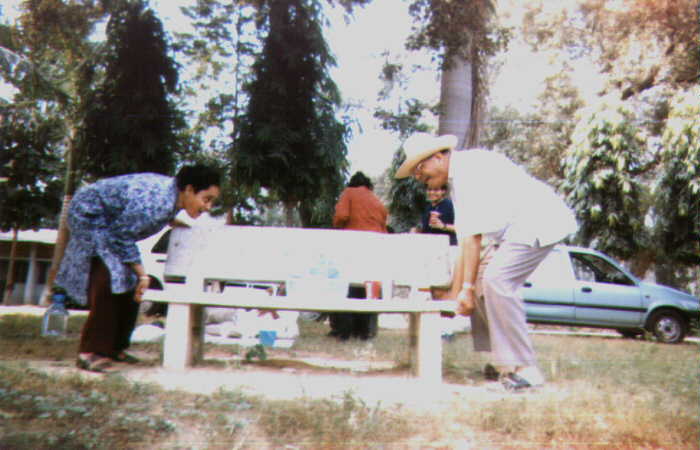 Hi ! Do write back with reactions /suggestions /objections...
Hi ! Do write back with reactions /suggestions /objections...


Other Pages
May not look right in Netscape and AOL Browsers. Press F11 for a better view.

Some under 25s at a picnic.
Hi ! Know anyone here ?
Again a quote from the "THE INDUSTRIAL ARTS OF INDIA" Page 44
author : GEORGE C. M. BIRDWOOD, CSI.,M.D.EDIN
The seventh chapter supplies a systematic contemporary account of the social and religious institutions of ancient India, as with very slight modifications they still( 1880 ) exist. The village system it describes is the permanent endowment of the traditionary arts of India, and has scarcely altered since the days of Manu. Each community is a little republic, and manages its own affairs, so far as it is allowed, having rude municipal institutions perfectly effectual for the purposes of self govemment and protection.
Its relations with the central Government are conducted by the headman, and its internal administration by a staff of hereditary officers, consisting of an accountant, watchman, money-changer, smith, potter, carpenter, barber, shoemaker, astrologer, and other functionaries, including, in some villages, a dancing girl, and a poet or genealogist This whole chapter is of the deepest interest.
The form of government it enforces is in marked contrast with the feudal type of the original Vedic traditions to be found running through the Brahmanical revisals of the Ramayana and Mahabharata.
All traces of patriotism and of the sentiment of devotion to the common weal, and of loyalty to great national leaders, which, are found in every true Aryan race, and certainly characterised the Vedic Aryas of India, and which are essential to the preservation of the liberties and independence of states and empires, have been eliminated from the sacerdotal system of Manu. It
recognises only the narrow interests of the family, the village, and, in a very limited degree except among Brahmans, the caste.
Thus for nearly three thousand years it has suppressed all sense of nationality and public spirit in India, while fostering to the utmost the selfcontained life of the petty religious communes, which possess no other bond of union but that of a religion organised expressly to bring the forces of progress inherent in every Aryan race into subjection to the dominant priesthood. The kings and the people are integral parts of a divine law of which only
tbe Brahman is the rightful administrator. But while the system failed utterly to provide for the external defence of the country, , it has rendered it proof against internal revolution. It is the true charter of the landed democracy of India, and in giving permanence to the proprietorship of the peasantry in the soil of the country, it has conserved Hindu society intact and unaltered through successive overwhelming invasions and a thousand
years of continuous foreign rule. India is in fact the only Aryan country which has maintained the continuity of its marvellous social, religious, and economical life, from the earliest antiquity to the present day.
Is all this still true in rural India?

Same picnic. Location Bhola ki Jhaal. Last week of December 2000, before everyone goes to their colleges. Great weather, good company, good food, changed surroundings equals high spirits. Winter is our best season. Read a poem by Rohini - the girl in the white pullover . The way to Bhola falls is a little road which heads west off the Meerut bye-pass. You have to inquire. And on the way to Bhola is a little village called Idrishpur. It is not even marked on the Meerut district Map. That name should ring a bell for those who keep tabs on Indians who have made it big in Silicon Valley. The famous Raj Singh hails from here. Naveen Jain of Infospace also has close links to Meerut.
However around these parts we can still be happy and not worry without being "high tech".

The proud owners of the under 25s. All teaching in schools. In almost all schools here women have an important role to perform.

Cheetal park about 50 km from here. We are not famous for either great intellect or great integrity. Sadly those properties influence visitors to the area, too. The Mexican in the picture is a Lucknowi settled in Delhi, the lady is a Prof. from Maharashtra. They are picking up a concrete bench, and trying to take it home in their car.
It will not fit in the car if they manage to get it out. That however is a minor detail.
 Hi ! Do write back with reactions /suggestions /objections...
Hi ! Do write back with reactions /suggestions /objections...

